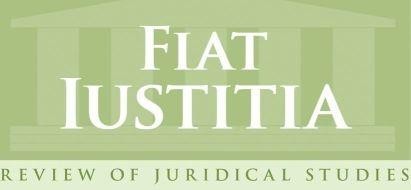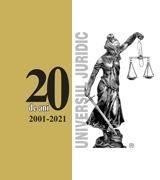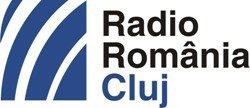The 14th edition of the International Conference
“THE EFFICIENCY OF LEGAL NORMS” – The Rule of Law in the Age of Artificial Intelligence
will be organized in May 16th – 18th, 2025
Cluj-Napoca, Romania
Hybrid conference
In an era marked by spectacular technological advances, artificial intelligence (AI) has become a driving force for the transformation of economies, societies and, last but not least, the rule of law. The rapid development of AI raises fundamental questions about how legal systems and state institutions can respond to the challenges brought by new technologies. Thus, “The Rule of Law in the Age of Artificial Intelligence” becomes an essential topic for reflection and debate, given that new digital realities are not only changing the rules in the field of fundamental rights, freedom and justice, but also in governance and the protection of citizens.
Artificial intelligence offers immense opportunities in terms of efficiency through the digitization of administration, access to information and transparency of government decisions, but also brings with it challenges related to the ethical regulation of emerging technologies, the protection of personal data, combating algorithm-based discrimination and legal accountability in the face of automated decisions.
Are current regulations prepared to respond to the new patterns generated by AI? What are the risks of eroding the fundamental principles of the rule of law, such as the separation of powers in the state, the right to a fair trial and free access to justice, in a world increasingly dominated by algorithms? How can the protection of individual rights be ensured in a digitalized and automated world? These are just some of the questions that the conference participants will try to answer, emphasizing the relevance of adopting effective and balanced regulations in this area. It is time to reflect on how we can harmonize technological innovations with the fundamental values of democracy, in such a way that the existence of the rule of law is strengthened.
In the context of this technological revolution, it is essential that regulations are anticipatory, so as to prevent possible risks and ensure the balance between innovation and the protection of fundamental rights. Faced with the challenges posed by AI, the rule of law must reaffirm its commitment to its core values: transparency, accountability and the protection of human dignity. In this era of constant change, it is not enough to simply regulate AI, but we must understand how it can influence or even redefine the relationship between the state and the citizen.
The conference aims to explore not only existing regulations, but also new governance models and innovative legal mechanisms that can support a responsible and sustainable transition to the digital age. Participants can aim to analyze the role of public authorities, the private sector and civil society in formulating policies that ensure the development of ethical artificial intelligence, which respects human rights and is aligned with the principles of the rule of law.
In this globalized context, it is crucial that states and international institutions collaborate to create a coherent and harmonized legal framework that regulates the use of AI responsibly. Experiences from different corners of the world can contribute to the development of innovative solutions, applicable on a global scale, that both protect the fundamental rights of citizens and support technological progress. Thus, the conference will address not only the challenges and opportunities at the national level, but also the impact of international regulations and initiatives on the development and implementation of AI, with the aim of ensuring an ethical and sustainable digital future for all.
In parallel with international regulations and collaborations, another essential element in this digital landscape is education and digital literacy. In an era where AI technologies shape everyday reality, it is imperative that citizens, but also professionals from different fields, have the necessary knowledge to understand and interact responsibly with these technologies. In this sense, education plays a fundamental role in ensuring a future in which technology not only supports, but also protects fundamental rights. Thus, the conference will emphasize the need to form a robust educational framework that supports the development of an inclusive and responsible digital society.
Another important aspect is the creation of a continuous and open dialogue between governments, the private sector, academia, non-governmental organizations and citizens, to ensure a process of regulation and implementation of AI as transparent and participatory as possible. The development and regulation of artificial intelligence should not be the sole prerogative of authorities or the technology industry, but should be the result of a collaboration between all social actors involved.
Thus, the conference will encourage the exchange of good practices, strategies and innovative solutions that can help build an effective legislative and ethical framework that can respond to the needs and challenges of a digitalized society. The active involvement of citizens in this process is essential to create a digital future in which technology serves the general interest, while protecting the fundamental rights of each person.
Important deadlines:
Submission (registration form and abstract, maximum 300 words in English) | April 15, 2025 |
Notification of acceptance | April 25, 2025 |
The papers in extenso will be published in Fiat Journal (BDI), if they are submitted by and meet the publication conditions. We will return with additional details about the conference on this page, which we ask you to follow. | May 7, 2025
|
Our Partners are:


























